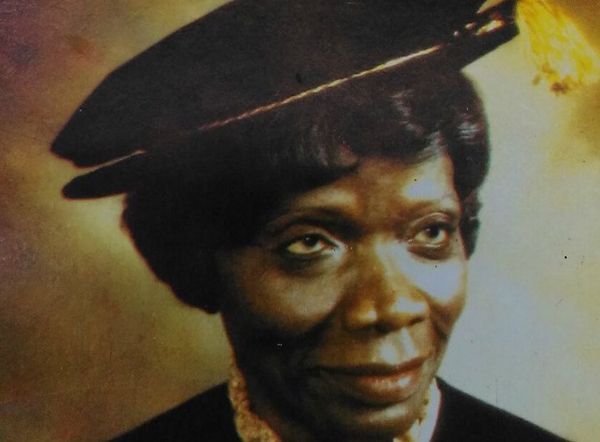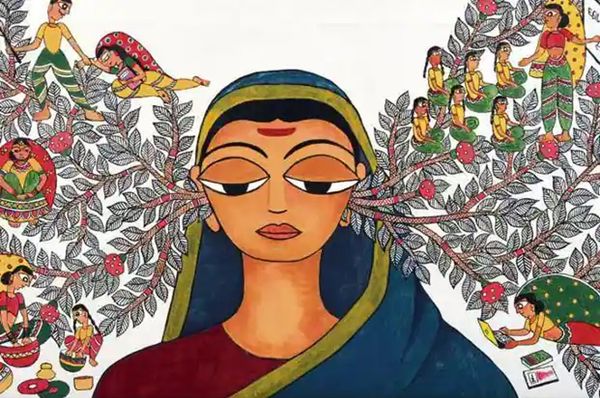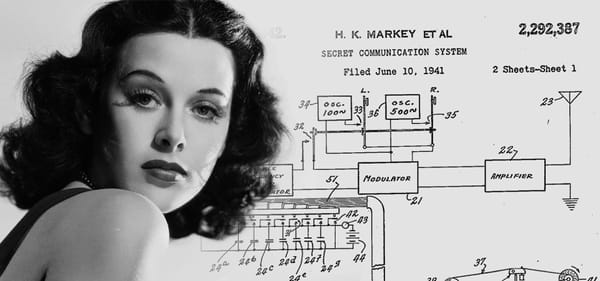Wang Zhenyi - Astronomer, Mathematician, Poet
18th century China was no feminist paradise. Wang Zhenyi breached social customs by educating herself in astronomy, mathematics, and poetry. Ahead of her time, she proved women had ability equal to men. She is an inspiration to all women who seek to pursue science.
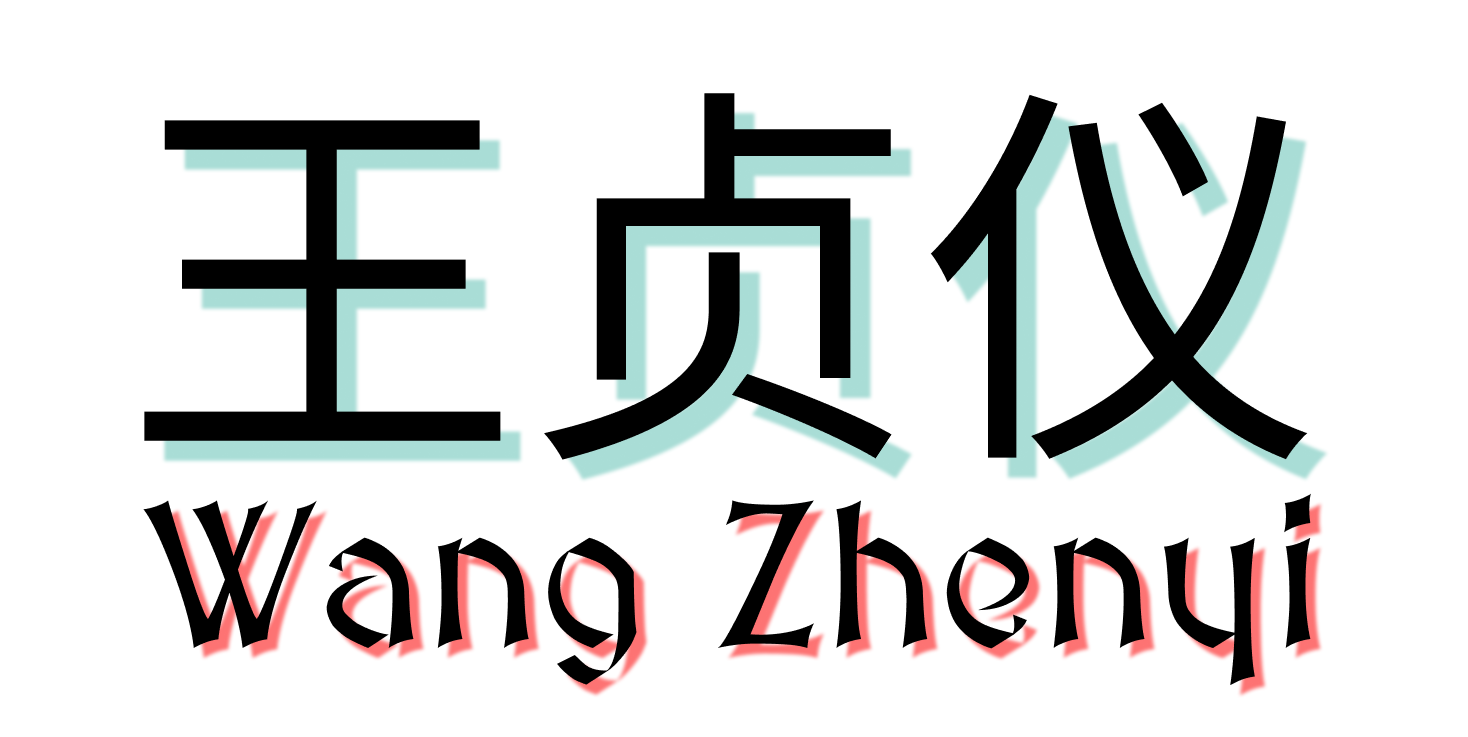
Born during Qing dynasty China in 1768, Wang Zhenyi came from an intellectual family which had its ancestral roots in Anhui province (Peterson, 2000). Her grandfather, Wang Zhefu, moved the family to Jiangning (modern day Nanjing) and was governor of Fengchen county and Xuanhua District (Shen, 2011). He was an avid reader who owned a vast selection of books. Despite societal norms which prohibited female education, Wang Zhefu taught his granddaughter astronomy - something she would be passionate about for the rest of her life (Lee et al., 1998). Zhenyi's father, Wang Xichen, was also an educated man. He failed the imperial examinations, prohibiting him from becoming a government official, so he studied medicine (Peterson, 2000). Like Zhefu, Xichen taught Zhenyi many things, including medicine, geography, and mathematics (Lee et al., 1998). It was not just the men in her family who helped to educated Zhenyi, her grandmother taught her poetry, another subject which Zhenyi had an affinity for (Lee et al., 1998).
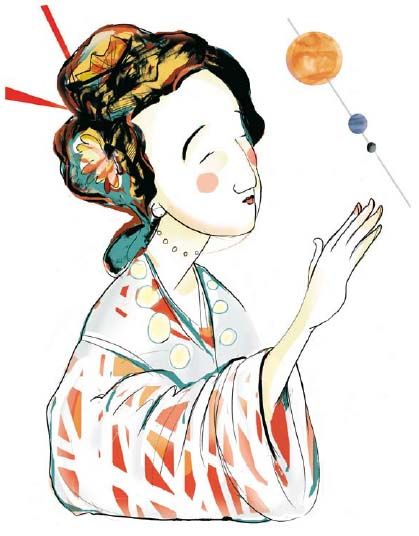
Following the death of Wang Zhefu in 1782, when Zhenyi was 14, the family travelled to Jilin province (near the great wall of China) (Peterson, 2000). They stayed in the region for around 5 years during which Zhenyi built upon her knowledge by reading her grandfather's books (Peterson, 2000). She also learned equestrian skills, archery, and martial arts from the wife of a Mongolian general (Peterson, 2000). At age 16 she travelled south of the Yangtze with her father, before moving back to Jianging (Peterson, 2000). Her experience travelling would later influence the poetry she would right. She made friends with other female scholars through her poetry when she was 18 and began focusing on her maths and astronomy (Lee, 1998). Following her marriage, at the age of 25, to Zhan Mei, Zhenyi became better known for her poetry, maths, and astronomy - she even spent time tutoring male students (Lee, 1998).
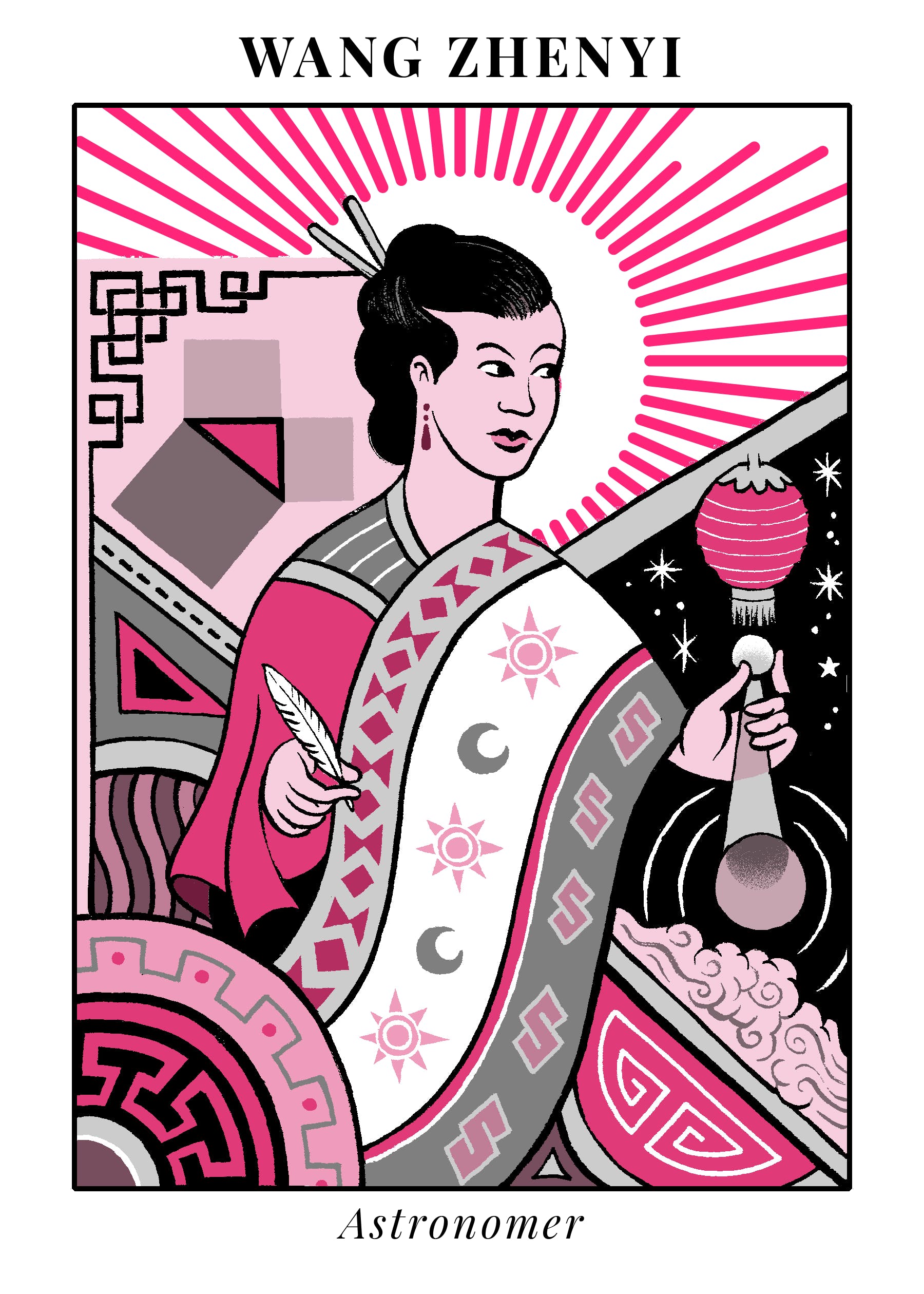
Wang Zhenyi excelled in astronomy and maths. She described her views of celestial phenomena in her article 'Dispute of the procession of the equinoxes' which explained and simply proved how the equinoxes moved and how their movement could be calculated. Zhenyi also authored other articles such as 'The explanation of a lunar eclipse' and 'The explanation of solar eclipses' (Peterson, 2000). In the latter she used a round table in a garden to represent the globe, a lamp to represent the sun, and a mirror to represent the moon, thus demonstrating how eclipses worked and the relationship between solar and lunar eclipses. The objects were moved according to astronomical principles and Zhenyi's observations of eclipses were incredibly accurate. She also commented on the number of stars, revolving direction of the sun, the moon and Venus, Jupiter, Mars, Mercury, and Saturn (Peterson, 2000).
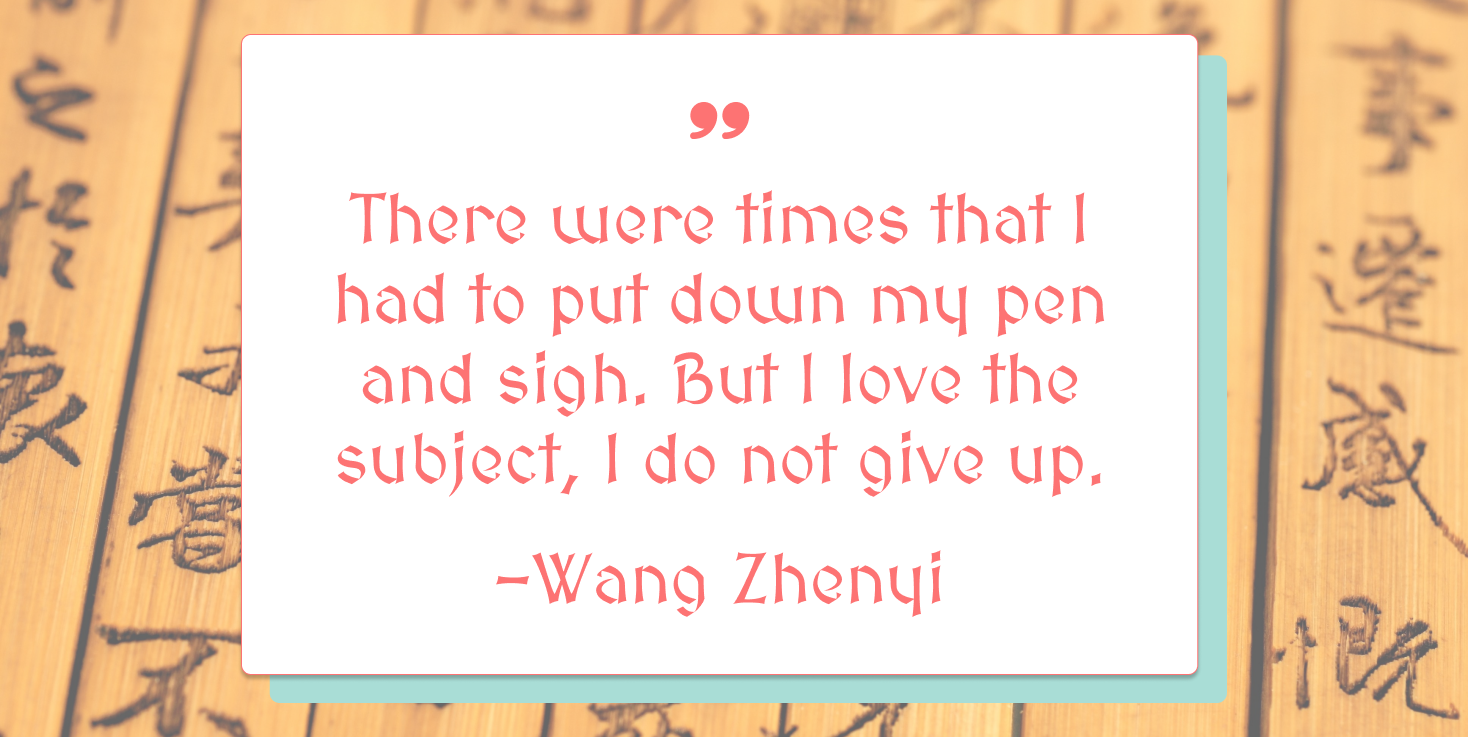
Astronomy was not Zhenyi's only strength. Her article 'the explanation of the Pythagorean theorem and trigonometry' demonstrated her mathematical expertise (Peterson, 2000). She also rewrote the book Principles of Calculation by Mei Wending (1633 - 1721). Wending was a well-known mathematician at the time; however, his book was complex and thus only accessible to those with advanced education. Zhenyi rewrote the book, calling it The Musts of Calculation, using simpler language, thus making maths more accessible for beginners by simplifying processes such as multiplication and division (Peterson, 2000). She also authored a book titled The Simple Principles of Calculations, was published when Zhenyi was just 24 years old. Much of her knowledge was self-taught, and her studies were difficult. She once wrote 'There were times that I had to put down my pen and sigh. But I love the subject, I do not give up' (Peterson, 2000). Wang Zhenyi was exceptional at both astronomy and mathematics, her work built on that of her contemporaries as well as her own research. He academic achievements are impressive for a woman who received no formal education in a time when a woman's place was in the home not in academia.
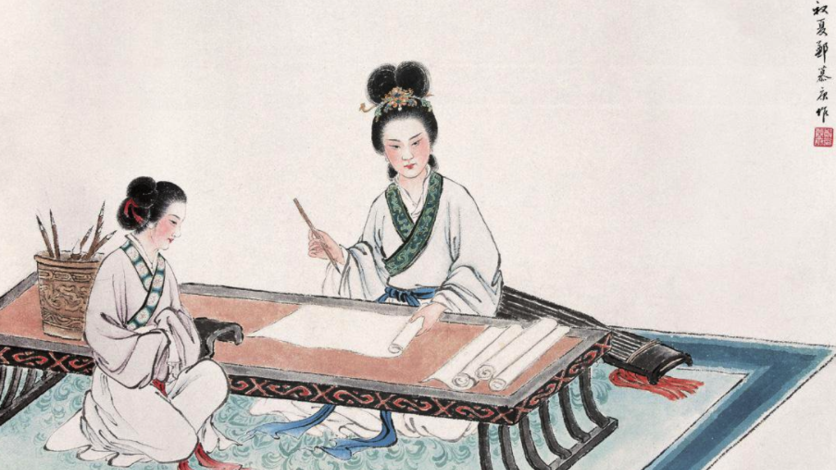
Zhenyi was not only proficient in astronomy and mathematics, she was also gifted in poetry which her grandmother had tutored her in (Lee et al., 1998). Her poetry was influenced by her academic experience and the travels she had with her father. In total she left 13 volumes of poetry, prose, and prefaces and postscripts written for other works (Peterson, 2000). Yuan Mei, a famous Qing dynasty scholar, commented on Zhenyi's poetry saying it 'had the flavour of a great pen, not of a female poet' (Peterson, 2000). Such a statement demonstrates the sexist attitudes of the time - the belief that a woman was not capable of performing as well as a man - but it also shows the level of respect for Zhenyi's work, she was considered equal to her male counterparts. Her work was known for her lack of flowery words (considered to be a common feminine trait at the time) and included an understanding of classics, history, and travel. Her poems, such as 'woman breeder of silkworm' and 'clothes washing', depicted lives of commoners - especially working women. Other works, such as 'A poem of Eight lines', portrayed corruption and the contrast between rich and poor (Peterson, 2000).
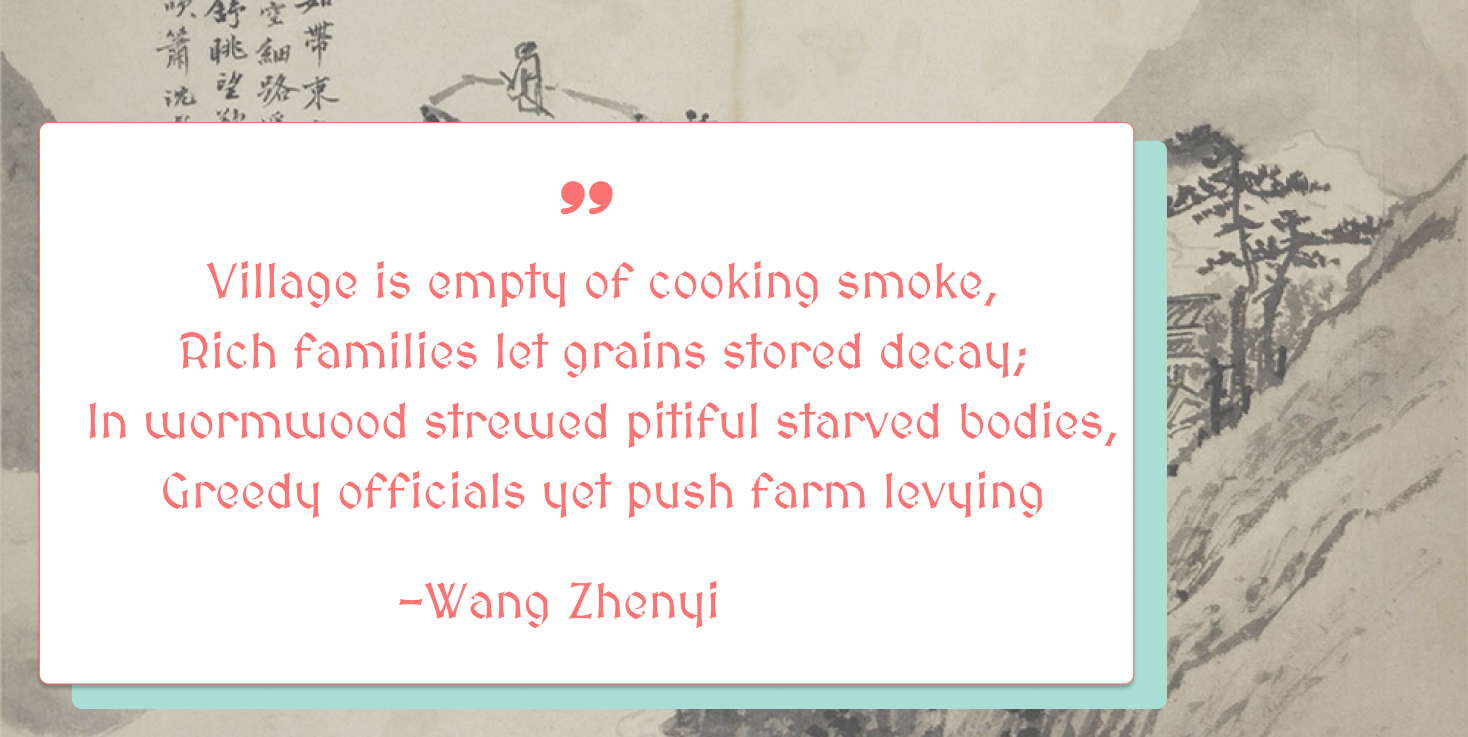
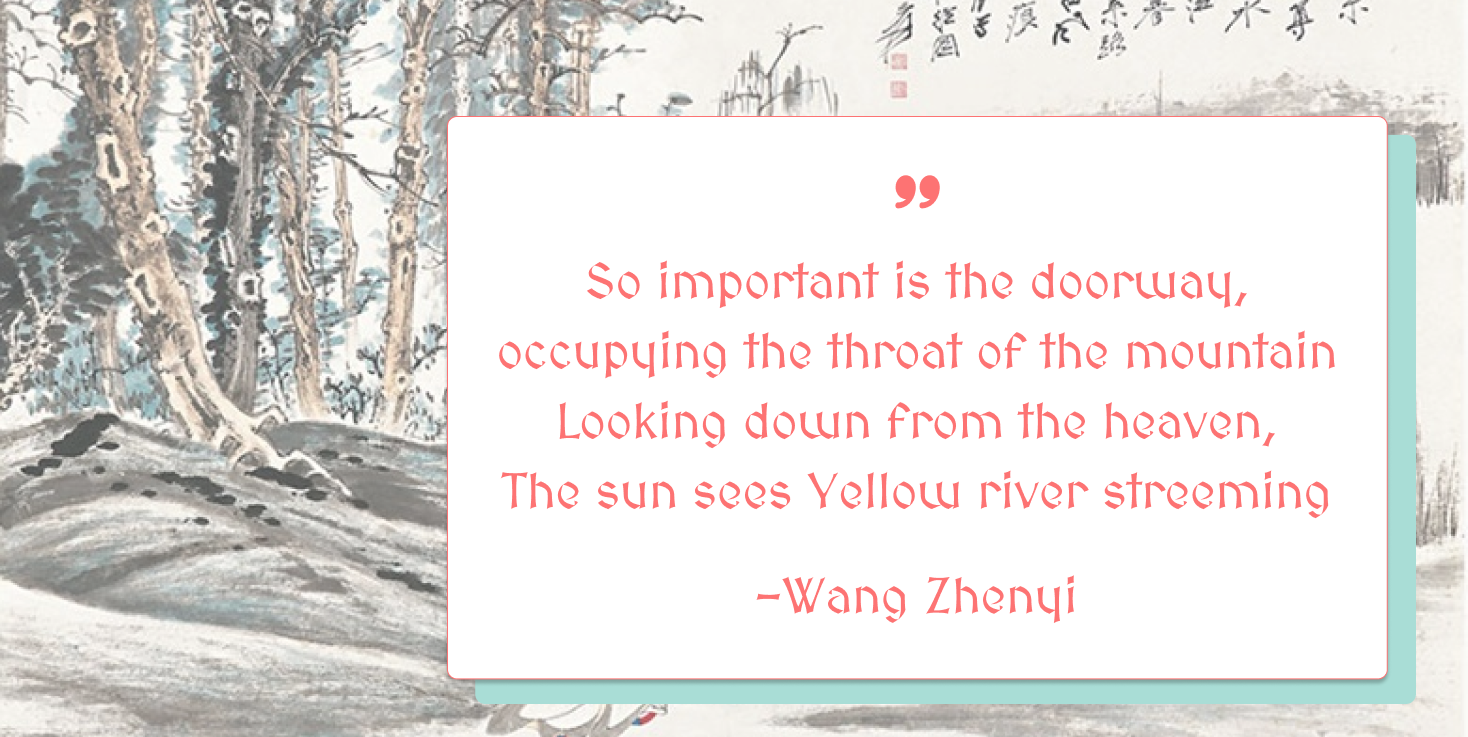
By the time she was 25 Wang Zhenyi was increasingly well known for both her academics and her poetry, however her success was short lived. In 1797, Zhenyi died aged just 29 from unknown causes. When she knew she was dying she gave her works and manuscripts to her closest friend Madam Kuai (1763-1827). Madam Kuai then passed the manuscript to her nephew, Qian Yiji (1783 - 1850) - a famous scholar of the time (Peterson, 2000). Yiji compiled Zhenyi's work and described her as the 'number one female scholar after Ban Zhao' (Peterson, 2000).
Wang Zhenyi passionately believed in equality and equal opportunity for men and women. Although she was pleased in her marriage, she also believed that social feudal values were inappropriate. She acknowledged that 'when talking about learning and sciences, people thought of no women' - a fact which is unfortunately familiar over 200 years after her death. In her view '[men and women] are all people, who have the same reason for studying'. Wang Zhenyi goes mostly unheard of in the west, although as research into women's history and interest in female contributions to science rises, individuals such as Zhenyi are getting the recognition they deserve. On Venus any crater over 20km in diameter can be named after a deceased woman who has made outstanding or fundamental contributions to their field. In 1994, Zhenyi's contributions and achievements were acknowledge when the International Astronomical Union's (IAU) Working Group for Planetary System Nomenclature named a crater on Venus after her (IAU, 2021).
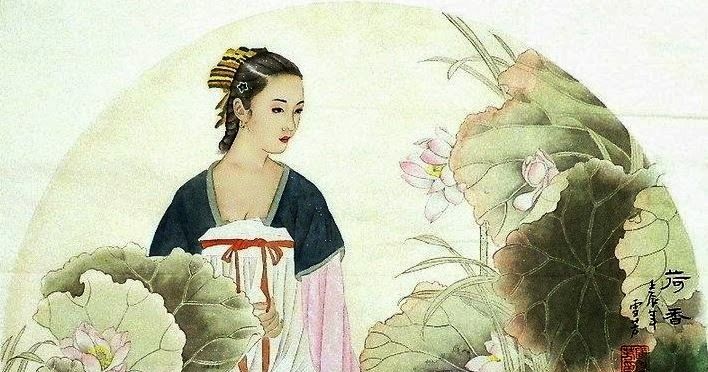
Works cited:
- IAU. (2021, September 12). Planetary Names: Crater, craters: Wang Zhenyi on Venus.
- Lee, L. X. H., Stefanowska, A. D., Wiles, S., Ho, C. W. (Eds.). (1998). Biographical Dictionary of Chinese Women: The Qing Period, 1644-1911. (Volume. 2). M. E. Sharpe.
- Peterson, B. B. (2000). Notable Women Of China: Shang Dynasty to the Early Twentieth Century. New York: M. E. Sharp.
- Shen, Y. W. (2011). 清代女科学家 (Female scientists in Qing dynasty). Zhejiang Education Press.


